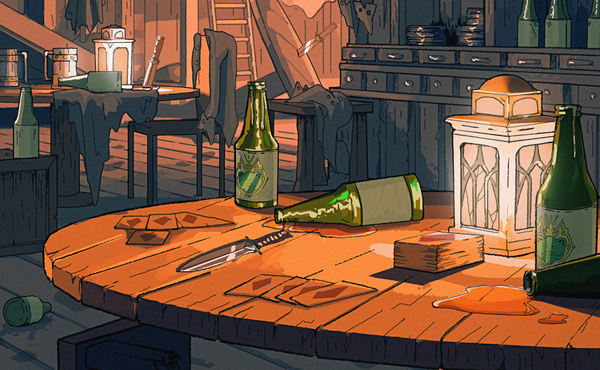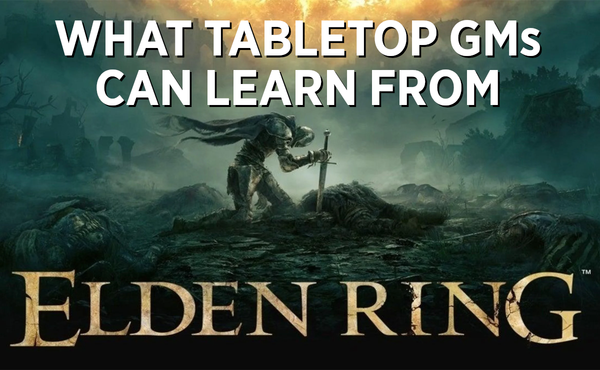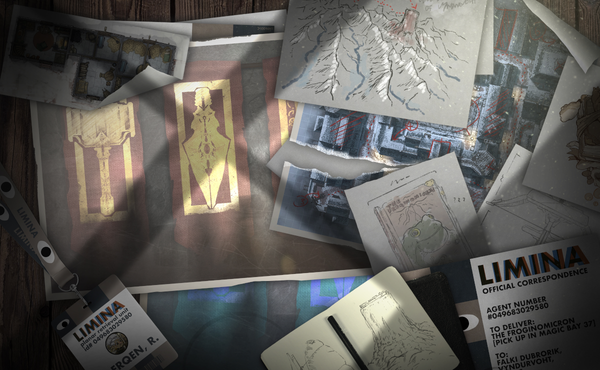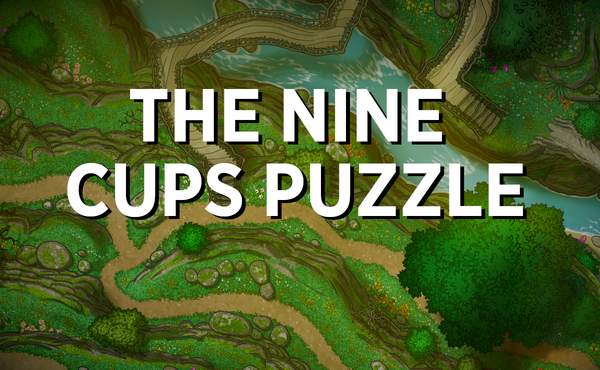Borough Bound Q&A #1
We answer your questions about TTRPG cities: how to do laws, vary up your villages, and add combat to otherwise safe settlements.
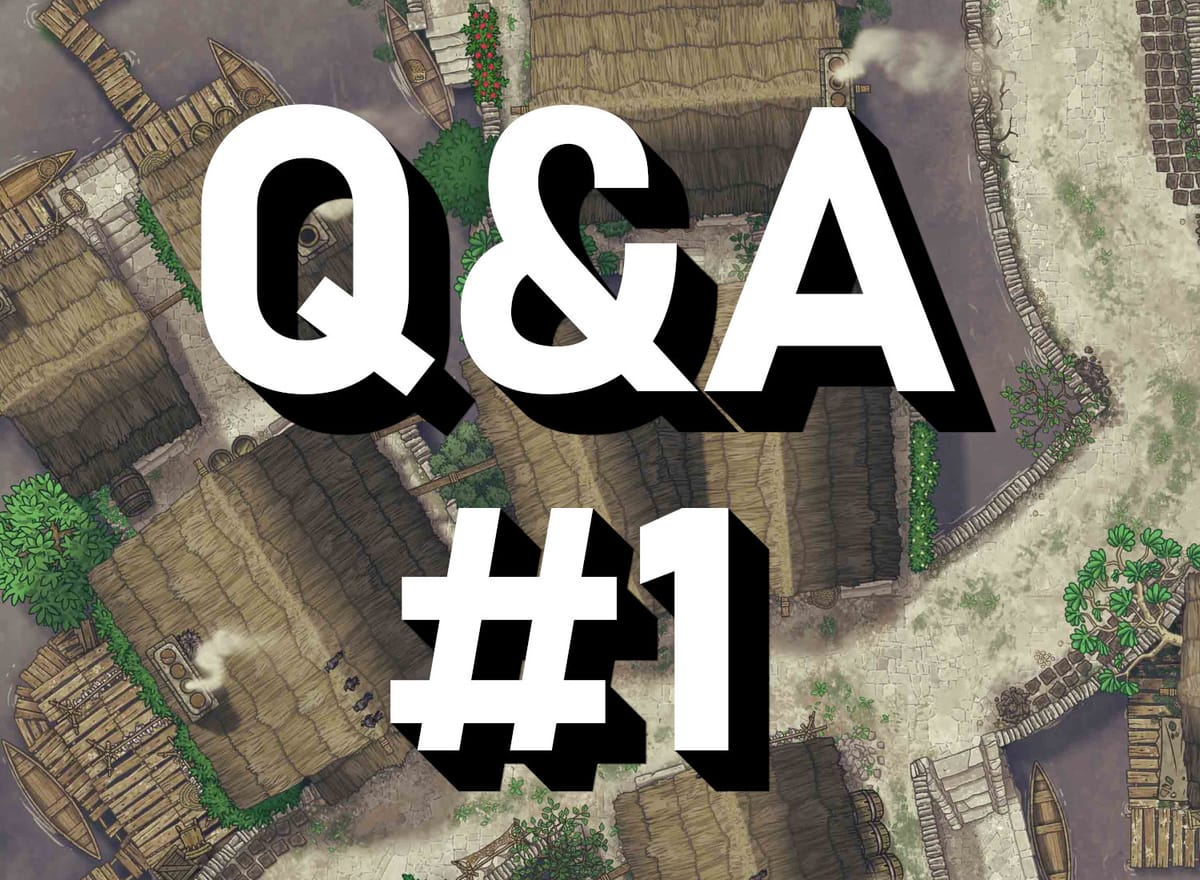
We asked you all for questions to be answered on the Borough Bound Blog, and you came through! I’ll try to go through as many as I can in this post. If you’ve got questions for us for a future Q&A, drop ‘em in the comments below!
Vibe out to some jazzy, ambient, underwater jams while you read you through our responses!
Mo asks
How do you make each city feel different, especially with smaller ones? (assuming they're all part of the same country and still quite similar for example)
Give every little city, village, or hamlet quirks. This is both the best way to handle small settlements in fantasy settings, and it is also entirely realistic. I live in Buffalo, NY. It’s a mid-sized American city that is known as the birthplace of the chicken wing, the home of the country’s most depressed sports fans, and a city that—due to its precise proximity to the Great Lakes—gets pummeled with lake effect snow every single year. Those 3 quirks would be plenty to make a city stand out even in a fantasy setting. Let me show you how.
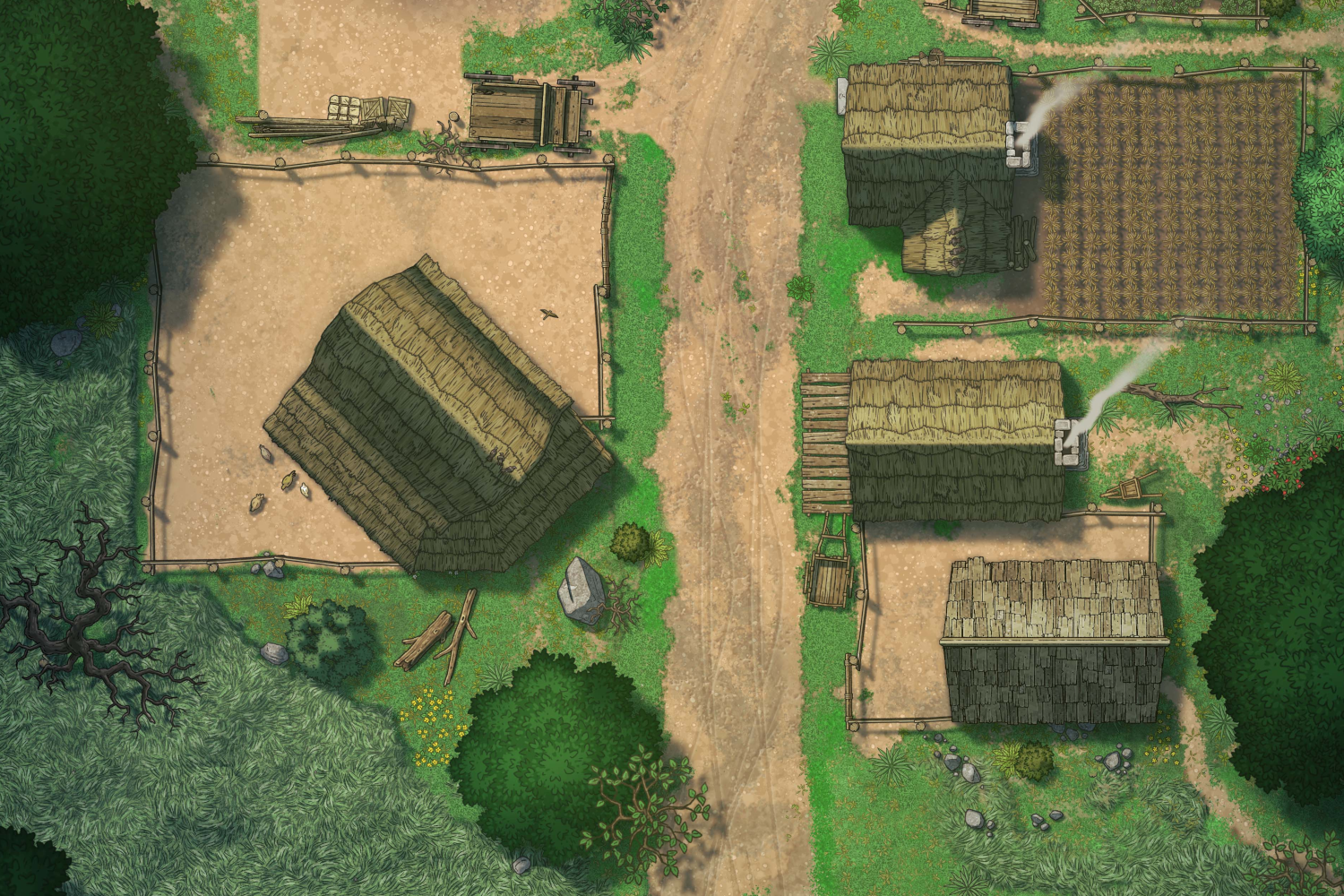
“Oh, yes, Littleburg might seem uninteresting, but actually this is where [culinary delicacy] was first created.” Then, add in a little subplot about the chef who created that delicacy being furious that other chefs claim they now cook it better. Does your party want to eat at the place that invented the delicacy or the tavern that serves an unambiguously tastier rendition? Is there a feud? Will your party take a side?
“In Littleburg, our people care more about the contest of knights than residents of any other village, and yet our favorite knight suffers the most heartbreaking losses year after year.” Is the knight cursed? Is the village cursed? Will the Bills ever fucking win the Super Bowl? Can your party help the knight to win this year? That’s a great little plot!
“Littleburg seems to have temperate weather, but for some reason, the snows here are unbearable.” What’s really going on? Is there something about the climate that the people of your world don’t understand? Or is there a snow witch? Are the people of Littleburg hardier specifically because they have to deal with the snows every year?
Even a simple quirk can imply a huge amount of variety. Consider ONE unique thing about a town, and then extrapolate, extrapolate, extrapolate.
@Jaszcz007 asks
How to run a balanced economy and how to account for player actions on it (flooding the market with looted gear and hunted materials for example).
There are basically 3 ways to run an in-game economy that won’t totally crumble given the party’s actions, and which one you choose to employ will partially depend on what RPG you’re playing.
Option 1 is to very carefully keep track of how much money/gold you’re giving your party, and then to adjust prices on the fly accordingly. Periodically ask them how much money they have, and when they ask to buy something actually useful (a magical item, a vehicle, a home base), give them a price commensurate with their wealth. Usually, I find it’s more useful during downtime shopping sessions to give them choices of what to do with their money that are more like “do you want A or B” instead of “here’s a list of everything you can buy, so have at it.” Going to a magic item shop and hearing that a sword is 3,000 gold and a helm is 4,000 gold—knowing full well they can only afford one or the other—usually makes for more compelling gameplay than actually tuning the economy perfectly from the get-go.
Option 2 is to fully abstract money in the first place. Don’t track literal gold pieces, but instead track a stat that’s some version of “wealth.” Whether or not the party can buy something isn’t about counting up how much loot they’ve acquired, but instead reflects something more basic on their character sheet. Maybe whether or not they can buy something is more a question of finding a seller, accruing esteem, and building their character in a certain way. Lots of indie RPGs handle money this way, and I think it’s often more compelling than dealing with the nitty gritty of gold pieces. You either have enough abstract wealth to acquire something or you don’t.
Option 3 is to follow the exact guidance of your RPG. D&D has those damn gold / loot / magic item tables in the DM’s Guide that make it explicitly clear how much your party should be earning and how much it should cost. These tables are far from perfect, but it’s a hell of a lot easier to follow that guidance than to try to concoct a perfect system from scratch. It’s not glamorous, but sometimes outsourcing the headache is the smartest option. Something like Mausritter—for which items and currency are much more fundamental to the gameplay experience—make this process more appealing.
I’ve used all 3 methods, but the more I play, the more I’ve been learning toward option 2. So many other modes of interacting with the world are abstracted in tabletop games, so why not abstract the economy as well? It also discourages the boring side of being loot goblins (e.g. robbing every corpse they come across for a handful of daggers to sell or whatever).
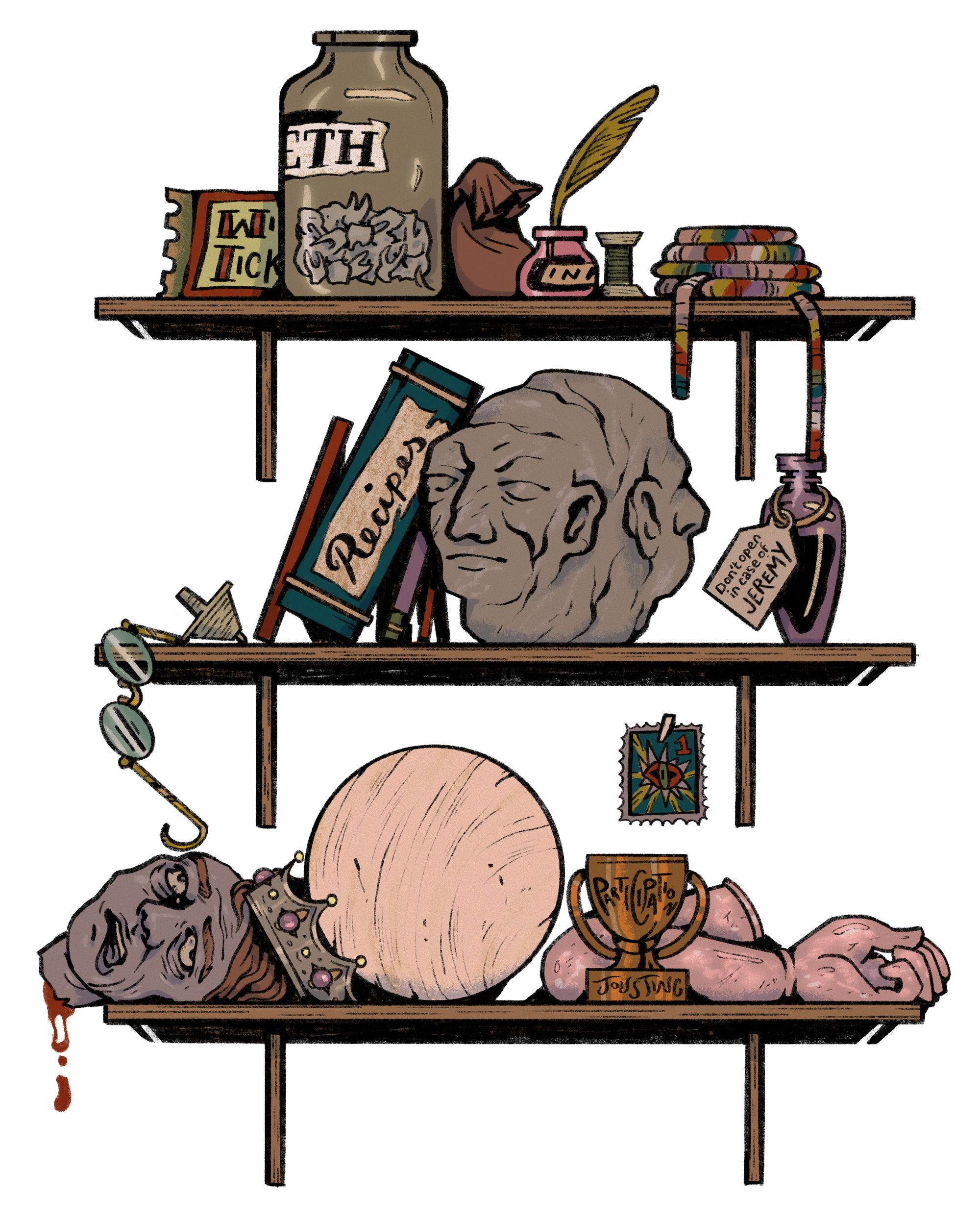
Cornelius asks
What's something about designing a TTRPG city that sounds like a good idea but is probably a bad design choice?
Gosh, where to start. I think the first thing you need to consider is the RPG City Trillema. I wrote a whole lengthy post about it, but the gist is that you can never design a city that is simultaneously extremely detailed, comprehensively explorable, and realistically proportioned. When designing a city for your campaigns—or, y’know, for your patrons—you need to choose which of those elements you’re going to sacrifice.
It’s usually foolish to focus too much on certain aspects of realism. For example, real world cities are far less “point-of-interest dense” than a good TTRPG city. You can walk for blocks and blocks through real life cities without seeing a single structure that would constitute “something worth exploring” in a tabletop context. But, y'know, why would you want that in an imaginary context? Likewise, there are infrastructural needs you probably don’t want to overemphasize: the exact workings of sewers, transportation networks, and other utilities. If you can find a way to make them interesting (a sewer dungeon? a chase down a complex highway network? something noteworthy about how water is distributed?), then cool. If not, just skip it.
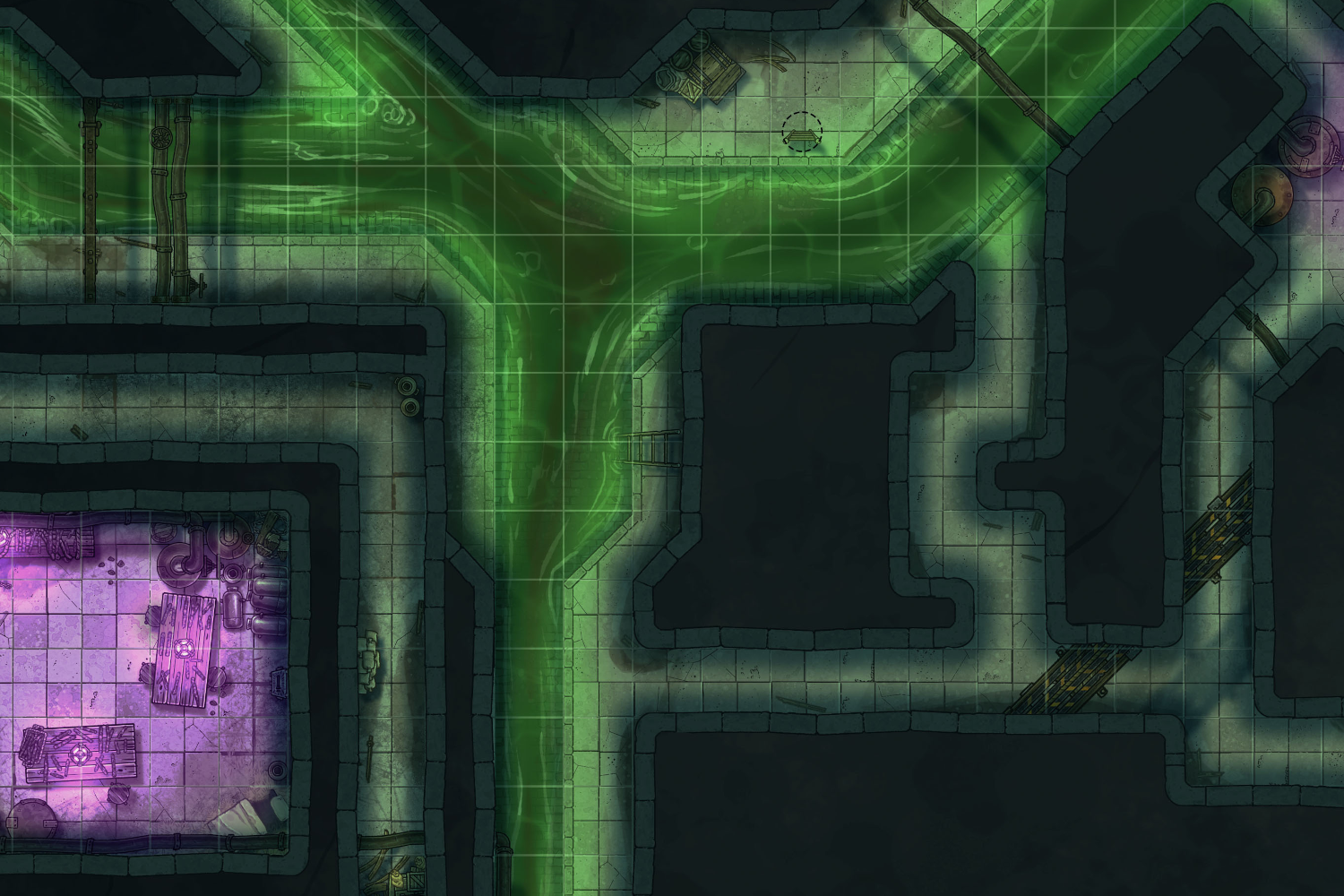
You also need to pick your battles when it comes to details. It’s important to consider the broad strokes of the history of your town but not to have a full list of former mayors and so forth. You don’t need 100 NPCs. Hell, you might be able to get away with generating most of them on the fly. Focus on the details you know you can’t improvise and then wing it with the rest in the moment!
ToesMeetWater asks
How can you add more variety to the enemies/monsters in a city? We can't venture into the sewers every time lol, so where else are the monsters located?
This is something we’re always thinking about at Borough Bound. It’s easy to forget to add locations in a city where you might actually fight something, and given that most TTRPGs prioritize combat to various degrees, you really ought to be thinking about how you’re going to insert combat into an urban setting.
The most common solution is urban dungeons. Like Toes alluded to, the “venture into the sewers to break up city exploration” is a common trope for a reason, but I think you can get way more creative with your urban dungeons. Here are some examples from Borough Bound cities:
- A district of mansions that has been paved over and is now overrun with mossy monsters
- An infernal carnival operated by demons and devils
- A library subbasement filled with a mass of shapeshifting darkness
- A bonemill haunted by a ghost dog
- A corporate HQ guarded by corrupt cops
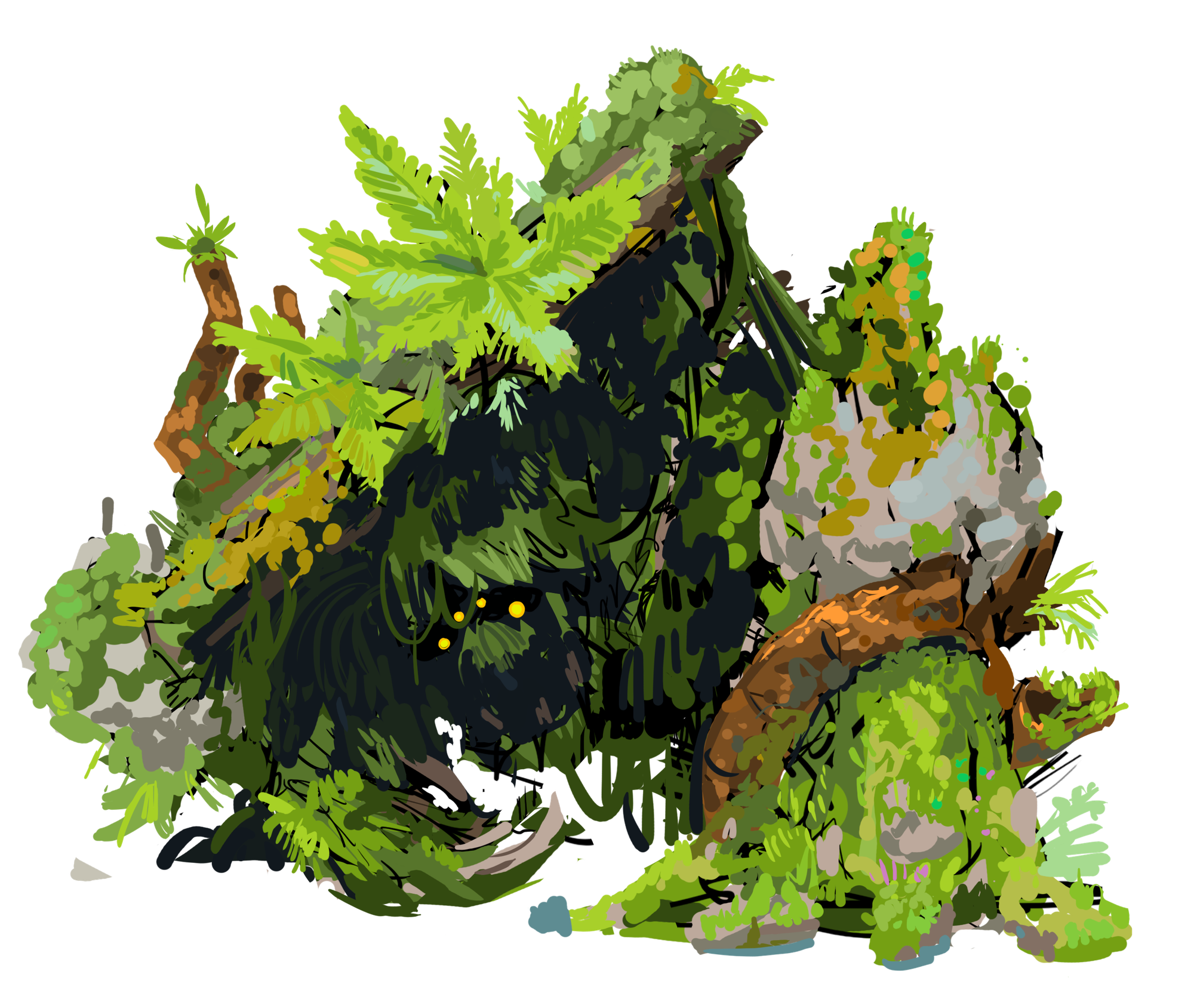
If you've set your campaign during a time of war, you can also bring the fighting to the city streets. Have an army invade the city, or let a rebellion unfold while your players are present. You’re allowed to have exciting stuff happen and let your players react to it. Some of my most exciting campaign moments have been during assaults on cities that my players assumed would be safe.
Next, it’s okay to have something super contrived. Put a fucking coliseum or fighting ring in the city and make it a plot point that your party basically has to enter. They won’t be mad! It doesn’t matter that it’s contrived. Your players will say “hell yeah, that’s fun.”
Also, obviously, one option is: just don’t add monsters! Let the city be a place of respite and introduce violence the moment you leave the city. That answer probably won’t satisfy Toes, but it is an option. I’ve created plenty of settlements for my campaigns in which 0 fighting ever occurs.
Lanzelin asks
What's a good way to run a city's legal system? How to balance the judiciary and the policiary (forgot the term, non-native derp) side? What in the gods name is a reasonable number of city guards, police, and potentially a standing army? How do volunteer forces come into play? I fall over this every single time. How do policing.
The first half of Lanzelin’s question falls into my bucket of “things that you should only focus on if the answer is interesting.” For example, if you have no reason to think your city would have a noteworthy legal system, simply do not address it unless you have to. Assume that the regular crimes (murder, theft, etc.) are illegal, and that there is some means of adjudicating and punishing it.
90% of the time, you can get away with never enumerating a city’s laws and simply saying “yeah, there are a handful of guards who work for the city and will try to arrest you or worse if you commit crimes.” That’s truly sufficient.
If your city calls for something more interesting, that’s when you can get creative. Our setting of Crabwell is all about the law. In Crabwell, a disembodied voice echoes out from a giant tower every evening at sunset to make new decrees. We go real deep into the weeds in the setting guide for this one. We discuss the governmental body that keeps track of these decrees, the mayor-equivalent character who’s tasked with enacting the voice’s will, and the guard force that’s responsible for punishing those who break the laws. We also give probably 100 or more example laws and consider the practical ramifications of those laws. The weirdness of the law is the whole point, and that’s why we focus on it.
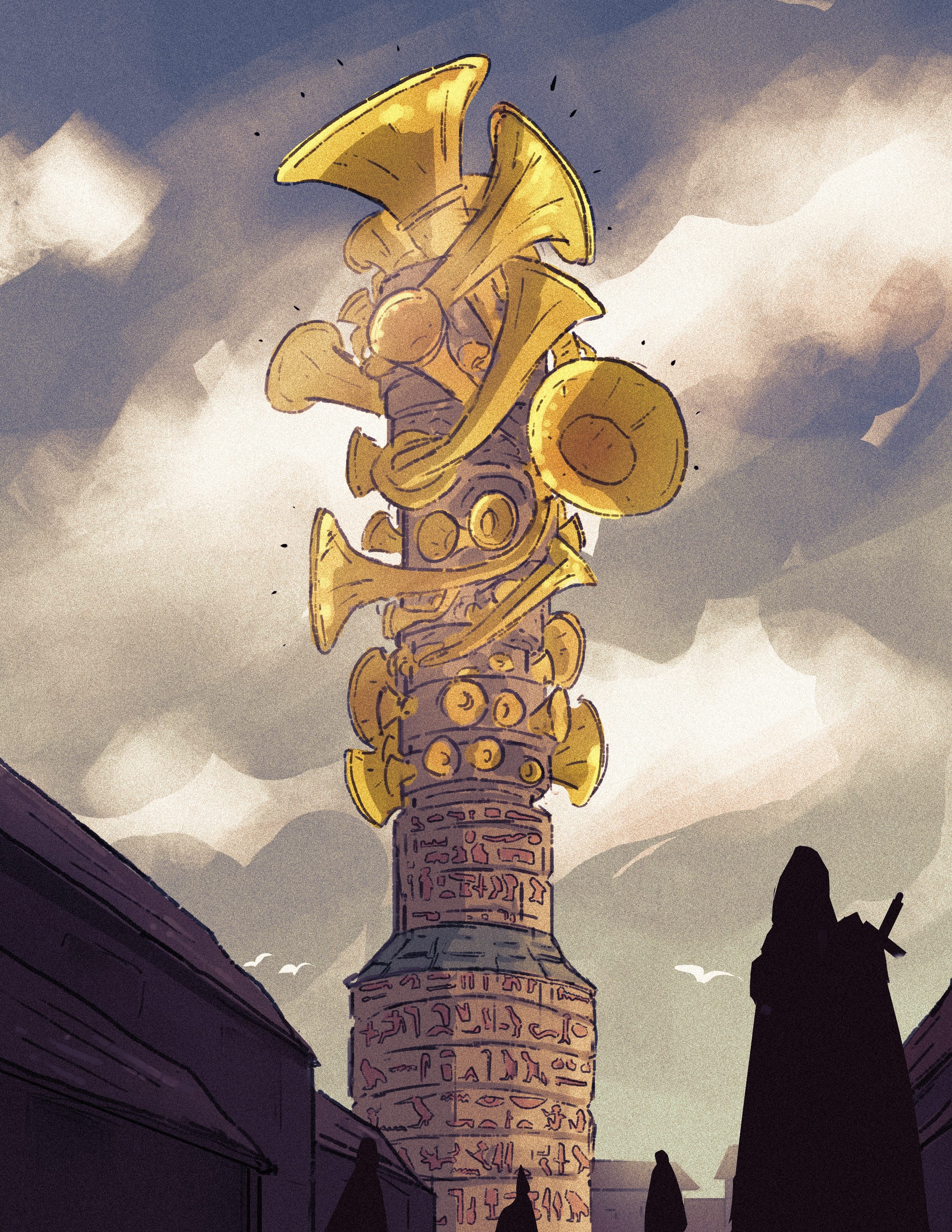
In my campaigns, dealing with Crabwell’s laws is fun because you can nudge your players toward interesting tactics and/or stymie their efforts. The party can also try to break the law, but… y’know, there are potential risks! Even if you think you can take the guards, do you really want to make yourselves an enemy of the state?
Okay, what about other examples? Well, certain varieties of fantasy creatures treat laws quite differently. Fae are bound by niche rules (can’t enter salt circles, must obey contracts), vampires can’t enter abodes without being invited in, and so forth. Those sorts of laws are always interesting because they quite clearly interact with the other mechanics of your RPG. If you’re fighting a vampire on city streets, it’s incredibly satisfying to break and enter into some random home knowing that the vampire cannot follow. I think that’s what you should focus on: the elements that will motivate compelling play. The exact manner of punishing tax fraud is usually not going to be equivalently riveting.
As for the numbers, have them reflect how powerful and carceral the city is. A draconian empire will have guards on every corner, a podunk hamlet might have a single sheriff. If your players beg you for exact figures (“how many cops are in this town?”), you can just say “I’m not sure the exact number, but it seems to be much more / much less than you’d expect for a town this size.” As to the nature of the cops (paid guards? conscripted soldiers? volunteers?), that’s another example of something that you probably don’t need to specify unless the answer is interesting.

